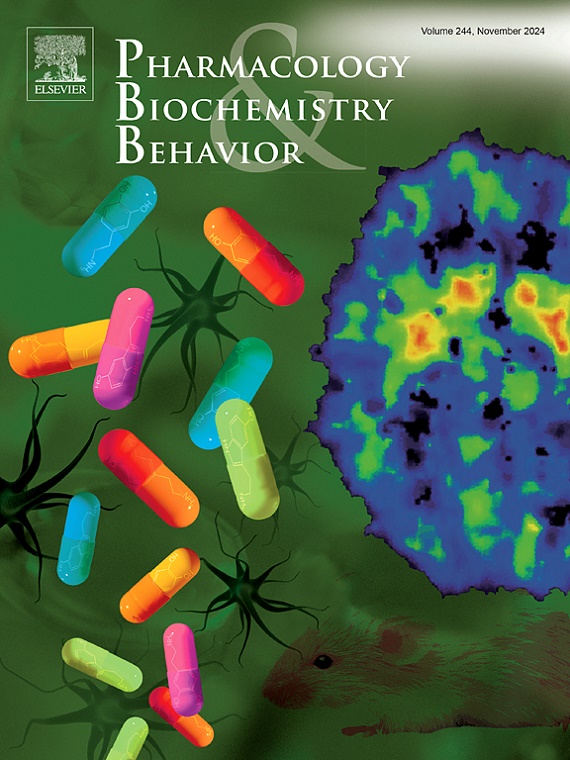The ventral hippocampus mediates experience-dependent social modulation of fear in rats
IF 3.3
3区 心理学
Q1 BEHAVIORAL SCIENCES
引用次数: 0
Abstract
Fear Conditioning by Proxy (FCbP) is a form of socially mediated fear learning, in which no-conditioned rodents acquire fear memories through social interactions with fear-conditioned rodents. This study investigates the impact of prior similar experiences on the transmission of contextual fear memories in FCbP and explores the role of the ventral hippocampus (vHPC) in the social transmission of fear. Observers were divided into two groups: those with contextual experience (D/O) and those without contextual experience- naïve (O). These rats were exposed to fear-conditioned demonstrators (D) through social interaction, and their responses to fear contexts were observed. Additionally, the effect of vHPC inactivation on fear memory transmission was examined by injecting lidocaine into the vHPC. Fear was transmitted through social interaction among experienced rats but not among naive rats. Furthermore, lidocaine injection into the vHPC inhibited the social transmission of fear memories among experienced rats. This study demonstrates that contextual fear memories can be transmitted through social interaction among experience-dependent rats but not among naive rats. That inactivation in the vHPC blocks the social transmission of contextual fear memories.
腹侧海马体介导大鼠恐惧的经验依赖性社会调节
代理恐惧条件反射(FCbP)是一种社会中介的恐惧学习形式,无条件啮齿动物通过与恐惧条件啮齿动物的社会互动获得恐惧记忆。本研究探讨了前相似经历对情境恐惧记忆在FCbP中传递的影响,并探讨了腹侧海马体(vHPC)在恐惧社会传递中的作用。将观察者分为有情境经验(D/O)和无情境经验(naïve)两组,通过社会互动将大鼠暴露于恐惧条件示威者(D)中,观察其对恐惧情境的反应。此外,通过在vHPC内注射利多卡因,观察vHPC失活对恐惧记忆传递的影响。恐惧在经验丰富的大鼠中通过社会互动传播,而在幼稚的大鼠中则没有。此外,利多卡因注射到vHPC抑制恐惧记忆在经验大鼠之间的社会传递。本研究表明,情境恐惧记忆在经验依赖大鼠中可以通过社会互动进行传递,而在幼稚大鼠中则不能。vHPC的失活阻断了情境恐惧记忆的社会传播。
本文章由计算机程序翻译,如有差异,请以英文原文为准。
求助全文
约1分钟内获得全文
求助全文
来源期刊
CiteScore
6.40
自引率
2.80%
发文量
122
审稿时长
38 days
期刊介绍:
Pharmacology Biochemistry & Behavior publishes original reports in the areas of pharmacology and biochemistry in which the primary emphasis and theoretical context are behavioral. Contributions may involve clinical, preclinical, or basic research. Purely biochemical or toxicology studies will not be published. Papers describing the behavioral effects of novel drugs in models of psychiatric, neurological and cognitive disorders, and central pain must include a positive control unless the paper is on a disease where such a drug is not available yet. Papers focusing on physiological processes (e.g., peripheral pain mechanisms, body temperature regulation, seizure activity) are not accepted as we would like to retain the focus of Pharmacology Biochemistry & Behavior on behavior and its interaction with the biochemistry and neurochemistry of the central nervous system. Papers describing the effects of plant materials are generally not considered, unless the active ingredients are studied, the extraction method is well described, the doses tested are known, and clear and definite experimental evidence on the mechanism of action of the active ingredients is provided.

 求助内容:
求助内容: 应助结果提醒方式:
应助结果提醒方式:


